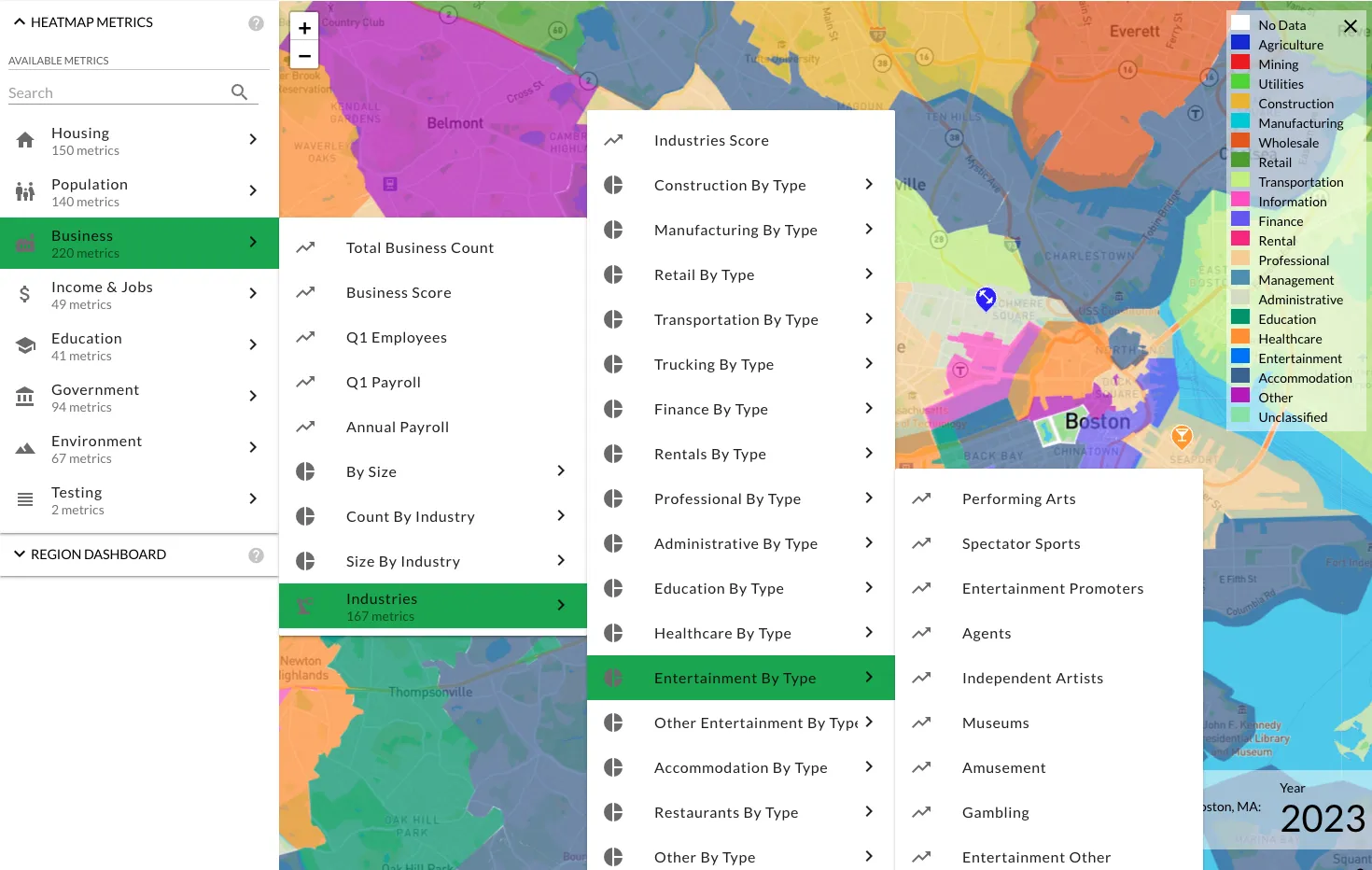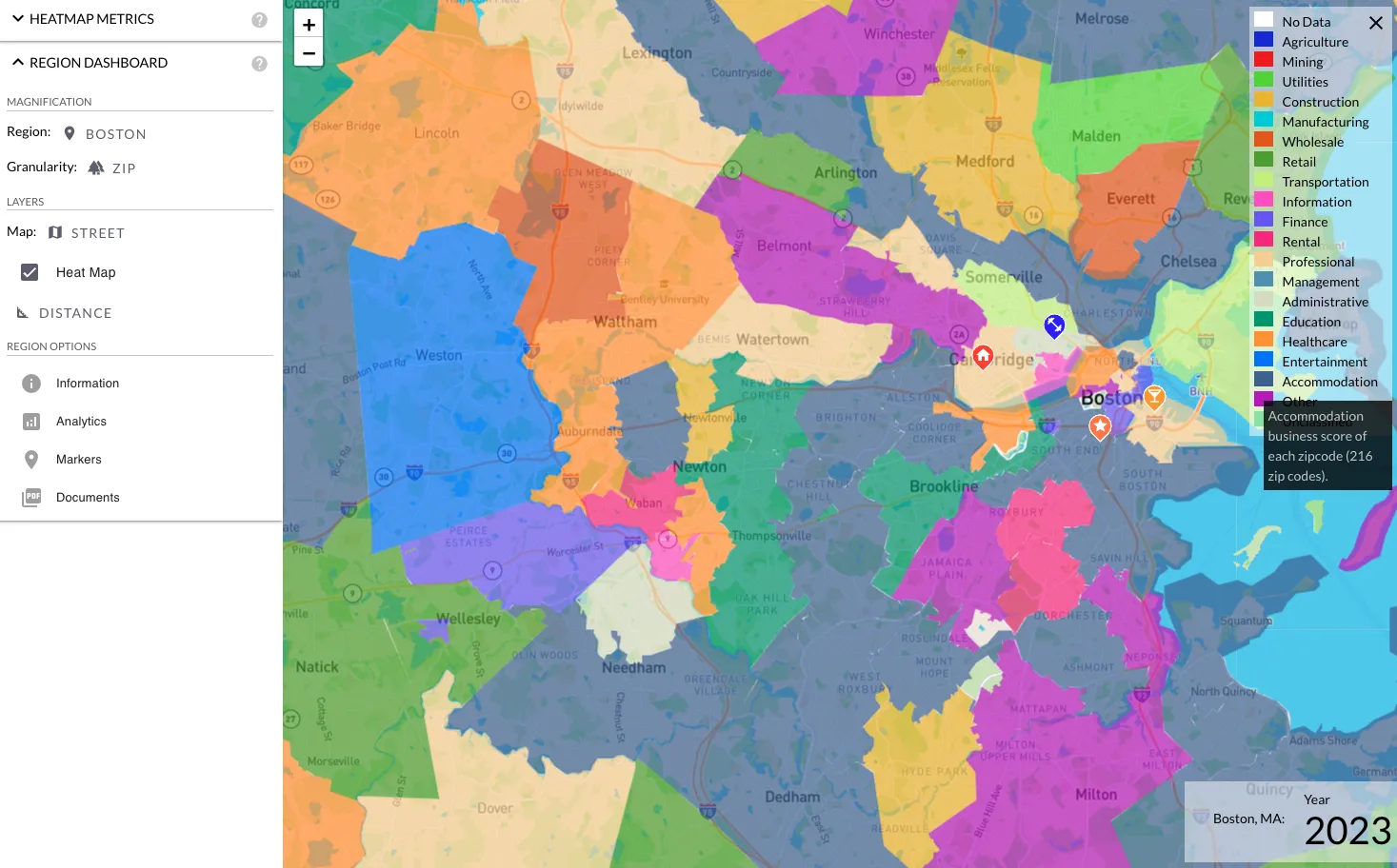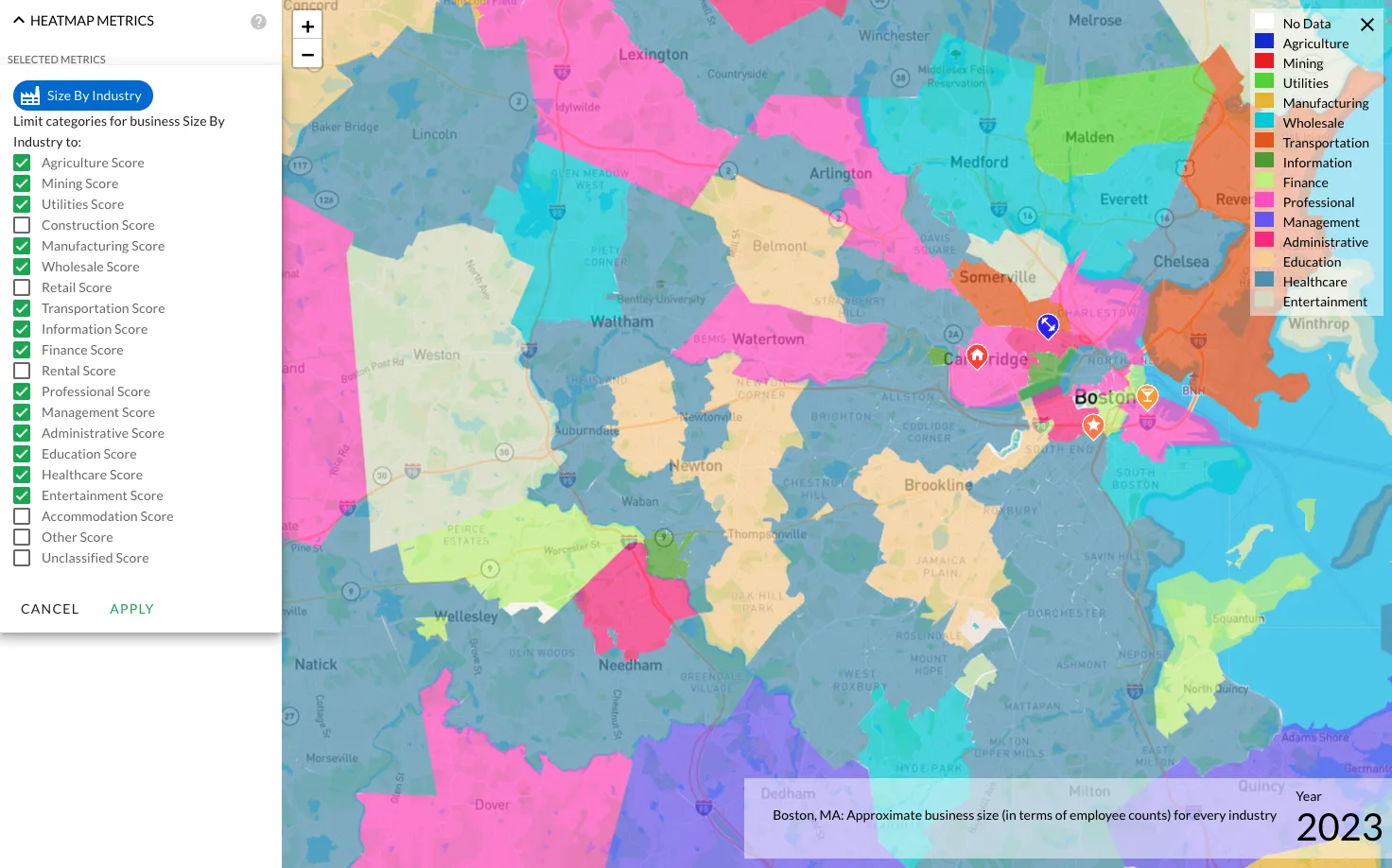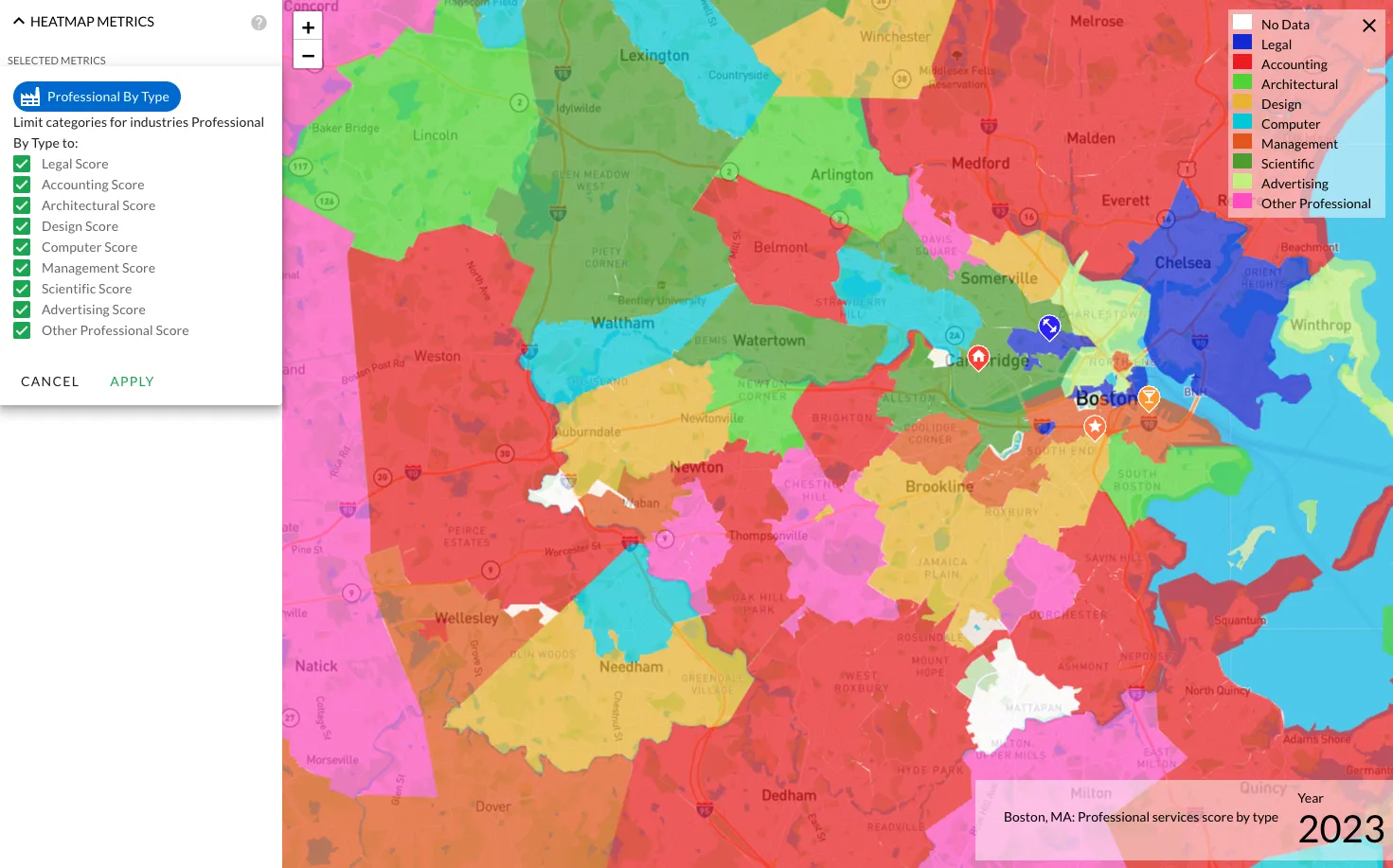Improved Business Metrics (NAICS)
 When I research new cities, I often want to understand the industries there. This is useful to understand the typical jobs, businesses and opportunities. Investomation already had the concept of
When I research new cities, I often want to understand the industries there. This is useful to understand the typical jobs, businesses and opportunities. Investomation already had the concept of business metrics for a while, but they were limited and slow to load. I've added a number of performance optimizations over the last few weeks and expanded the data to cover business industries in extreme detail. The data is based on the NAICS standard, which is the most detailed industry classification system in the US.
The NAICS standard categorizes businesses into 20 sectors, 99 subsectors, 312 industry groups, 713 industries and 1,066 industries. I've added all of these to the site, so you can see the most popular industries in each city, by zipcode.
The business are grouped such that you can examine industries at a high level, and also drill down into specific sectors. For example, if we look at all the industries in Boston, the heatmap tells us that the most popular ones are Accomodation, Construction, Retail, Professional services, and Healthcare. We also see that Accomodation (covering 216 zipcodes) is disproportionally represented on the map, to the point where it's obstructing our ability to see other popular industries in the area.

We can remedy that by disabling that category in the filter menu, along with other categories we're not interested in. Doing so allows us to see the real industries that Boston is known for: Healthcare, Education, Professional services, and Finance. We also see a large presense of Wholesale and Transportiation to the north, which makes sense if you've ever visited Everett or Chelsea.

These categories are still pretty broad, for example what does Professional services even mean? When we navigate into the Industries sub-menu, we see that Professional services include Legal, Accounting, Architectural, Design, Computers, Management, Science, and Advertising, among many Other services (photography, translation, public relations, etc.).

This shows us new trends that we didn't see before. Downtown has a lot of Advertising, Management and Legal services. Cambridge is known for Computer and Scientific services (this is the home of MIT and many tech startups, afterall). And the suburbs show a lot of Accounting (most-likely book-keeping and tax prep for small businesses). The trendy areas like Brookline and Jamaica Plain show strong Design activity - all trends that help us understand the local economy, and the vibe of each part of the city.
We can similarly repeat this process with other sectors, like Entertainment, or Healthcare to see similar breakdown. For example, Entertainment may show us where the nightlife is, or tourist attractions (indicating a desirable AirBnB spot). Meanwhile, Healthcare may show us a breakdown of medical services (indicating areas that may be popular for traveling nurses - who prefer mid-term rentals, which I've covered before). Education breakdown may show us popular spots for student housing.
Another interesting sector is Trucking, which can be used to identify areas that are popular for logistics, warehousing, and self-storage. Each sector offers a unique perspective on the local economy, which you can use to understand remote cities better than the locals who lived there their entire lives.